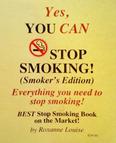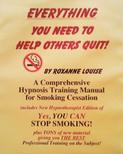To help you maintain a positive attitude that is so necessary to be happy, healthy, and succeed in any area of life, it is very commonly advocated that you
- stop listening to the news, ignore what is going on in the world, and to
- disconnect with the ‘negative people’ in your life.
What’s wrong with that?
1. Mankind’s very survival has depended upon paying attention. So has the existence of democracy and freedom.
Fail to take prompt, prudent, appropriate action, and you lose it. Better advice would be to be discerning in one’s news sources. As journalist Naomi Wolf has recently said, it is “crazy” not to check out what the media is saying because so much of it is propaganda, or ‘spin’. World events are sometimes ‘theatre, spectacle’ — false flag events put on deliberately to sway public opinion, to control and manipulate, and to receive approval for political response. See https://www.youtube.com/watch?v=WOh2vLp49js
She says that there is practically no real journalism happening anymore. News sources are not checked to see if accurate before reporting, so some have been blatantly false. Also, not mentioned by her but true is that almost all of American news sources (t.v., radio, newspapers) are owned by only 6 people. This limits the viewpoints expressed, and causes the very same ‘news’ scripts to be read on multiple channels. So it is important to look for accurate, trustworthy news sources that can alert you to developments that are important to support or snuff out. Then turn off the rest.
2. What you do not see, you cannot address, so the situation continues to fester and deteriorate.
I dare you to ‘think positive’ about the ’empty tank’ fuel gage on your car, or to the leak dripping from the ceiling. Not paying attention to it does not make the problem go away. While it is not easy to do so, it is important to
- Be AWARE, even VERY AWARE, yet have PERSPECTIVE,
- Take POSITIVE ACTION without losing HOPE,
- Find a place of BALANCE.
Environment that includes the thoughts and feelings of others, does have a powerful effect upon us. Stress and overwhelm is over the top. It seems that one way to control the negativity in our environment might be to cut off contact or dismiss those in our life who are depressed, upset or otherwise ‘negative’. But there is a price to pay for this.
3. You cannot write off anyone without losing some humanity within yourself.
Currently, scientists talk about a theory of Entanglement–the idea that everything and everyone is connected. Therefore each impacts upon the other. Ho’oponopono, an old Hawaiian practice, talks about each person’s responsibility in causing/contributing to another person’s behavior or illness. Christians are told “you are your brother’s keeper”, “love one another”, “do unto others as you would have them do unto you.” Other religions also emphasize compassion, kindness and charity.
And yet, in the real world we understand that there are limits to our time, finances, mental and emotional energy we can expend on being compassionate, listening to or helping others. Where is the balance?
Rather than write off a person that frequently complains, or is frustrated, angry or depressed, there is a way to show compassion, love and accept people where they are, and help them to shift their focus from problem to solution, and help yourself at the same time.
You can accomplish this through
- just listening,
- trying to understand what they are saying/feeling and why,
- acknowledging their feelings whether or not you agree with them,
- affirming your belief in their ability to meet their challenge ,
- and if it is true, just letting them know that you love/care about them
- “I’m so sorry you are going through this, but I want you to know I ____ (love you, believe in you, feel you are going to get through this).”
- If you don’t have the time or the inclination to listen and try to understand, then at least acknowledge their upset, and affirm a basic ability that exists within everyone to figure things out eventually (with or without help).
- I can tell you are really ___ (upset, depressed, etc.) about this. But I am ___ (unable to help you with it ___ because ___ (I am leaving right now, about to ___, don’t have any quick answers to help you with it). Nonetheless, I believe you have greater resources within yourself to bring into solving this problem. And I believe you are going to find the appropriate help you need to resolve it just as you have with other problems you have had in your life. I bet that you are probably a lot more capable and resourceful than you are giving yourself credit for right now. And if you think about other things you solved that you never thought you could, that awareness will help you now.
Use ordinary conversation to shift the mood of yourself and others
- Ask them a question that moves to possibility:
- If it could work, how would it work?
- If you could ___, what is something, no matter how small, that you could do right now?
- Ask a question that reminds them of other tough times they got through
- Can you remember another time in your life when things looked bleak, but which you got through? (If they respond ‘yes’, then say) Tell me about it.
- Has your car ever broken down? Did you get it fixed or just get another form of transportation? And did you solve that problem because it became a priority, and because it became a priority, you figured out a way to solve it? So if you make this problem of ___ a priority, can we assume that it is only a matter of time that you figure it out just like the other priorities in your life?
- Ask them a question that shifts how they look at it
- Who do you know that would look at this situation/problem differently? That might not be beaten down by it? That might not even be as upset or upset at all? What would they think that would allow them to have the same experience but not suffer nearly as much?
- If you were to pretend that you were ___, how would you go about resolving this issue?
- How can you look at this situation so that it doesn’t bother you nearly as much?
- Remind them of their resources to meet the challenge
- family, friends, their network, skills, talents, internal strengths
- Remind them of other positive things going on
- Give them an image of themselves as more intelligent, capable, resourceful than they are projecting at the moment.
- You know, right now you are giving me the impression that you think this problem is bigger than you are. But I don’t believe it. I think that this problem is going to force you to grow and is going to bring to the fore greater abilities and resourcefulness within yourself than you ever thought that you had.
I look for and help others to see resources within themselves. You can do the same. And when you do, you will find that you have greater resources within yourself!
Copyright by Roxanne Louise. However, this article may be shared in free online sources only if this copyright notice and link to http://www.roxannelouise.com and http://unlimitedpotentialhealingcenter.com are included with the content.

 citation: http://www.hdstockphoto.com/stock/image/cigarette-and-ashtray-1423898.html
citation: http://www.hdstockphoto.com/stock/image/cigarette-and-ashtray-1423898.html

Recent Comments